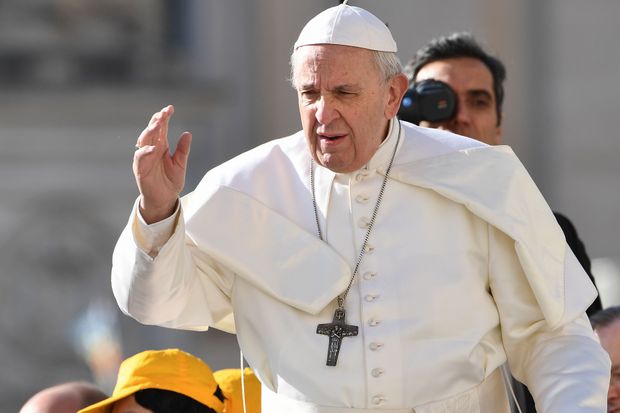Pope Francis Enacts His Culture Shift As the Catholic Church’s Abuse Crisis Topples Cardinals
By Michael W. Higgins
Michael W. Higgins is distinguished professor of Catholic thought at Sacred Heart University in Fairfield, Conn. It is a strange and disturbing business to see several cardinals lined up for indictment, censure, canonical sanction, jail sentences and public humiliation. It is not the customary way cardinals deport themselves. But times have changed. Hans Hermann Groer of Vienna may be deceased, but he ushered in the legacy of shame back in the 1980s when he abused seminarians. As did Keith O’Brien of St. Andrews and Edinburgh, who also retired in disgrace and died before having to return his red hat. Theodore Edgar McCarrick plunged the U.S Catholic Church into a crisis that is still roiling, and when he was judged to have abused a minor, in addition to seminarians, he paid the heaviest price yet: compelled to resign from the College of Cardinals and stripped of his priesthood. And now, Philippe Barbarin – Archbishop of Lyon and Primate of France – is paying a visit to Pope Francis to submit his resignation following a court trial that found him guilty of a clerical sex-abuse cover-up, while George Pell, a senior adviser to the Pope on economic matters and the most powerful Catholic prelate in Australia, has been sentenced to six years in jail for the abuse of two choir boys. All these men are lord cardinals, part of a body of senior men created by various popes to serve as their pre-eminent advisers and, when the occasion arises, to gather and elect a dead pope’s successor. They are not uber-bishops, filled with superabundant grace and charged with spiritual tasks beyond ordinary mortals. And, contrary to the perception many of them like to cultivate, and that the media likes to propagate with arcane relish – that they are the “princes of the church” – they are in fact archbishops of large dioceses, administrators of offices in the Vatican. Some are rewarded for years of service, and some are honoured for their scholarship; in these instances they tend to be priests of high distinction in their respective fields and not members of the episcopacy. And a pope creates them. The pope who does so commands special fidelity and gratitude. But all in the College are expected to pledge fealty to the pope of the time, whomever he is. That’s the theory, at least. Mr. Groer, Mr. O’Brien, Mr. McCarrick, Mr. Barbarin and Mr. Pell broke that special bond, and their complicity in either crimes of abuse or in cover-up has tarnished the image of the College. Not only are priest offenders being jailed, and bishops forced to retire, cardinals are being held to account in an unprecedented way. The rot of leadership failure is ever ascendant. Popes create cardinals in their own image, men who share their ecclesiological vision of the church and who share their management style. No surprise in that. But of the notorious five listed, it is important to establish that none of them were created by Pope Francis. They are cardinals from the era of John Paul II, and they reflect his priorities. Both John Paul II and his successor, Benedict XVI, made an unquestioning loyalty to the church their highest priority for qualification to the cardinalate. There’s nothing necessarily surprising in that, but a loyalty grounded in a dogmatic orthodoxy is disinclined to tolerate alternative perspectives. Cardinals who could be counted on to adhere to the papal line unswervingly – men who placed obedience above all else in the exercise of their ministry – were the preferred ones, meaning there was little room for pastoral outreach of an experimental kind, or for leadership marked by charisma, creativity and that free spiritual unrestricted openness beloved of Francis. But Francis is reforming the College of Cardinals, even as it combusts. He acts quickly when the toxins suppurate; his scolding of several Italian curial cardinals emeriti who preferred their lavish quarters over gospel poverty has become a cautionary tale for all cardinals with a taste for opulence. When he misjudges, he self-corrects. No other pope in living memory has acted like this with members of the College of Cardinals. There will likely be more revelations further tarring the College, but the Pope’s choice of cardinals – drawn from the peripheries, as he says – are prelates with a taste for justice over privilege, and they’re already moving to majority status. Francis is filling the College with his men. Time now to consider expanding it further with able women and men not in orders, enriching the college with a deeper wisdom than can be provided by mere demographic variety. Francis has nothing to lose by remaking a body of advisers and electors spared the wounds of clerical inbreeding and poverty of imagination. What better time than a time of scandal.
|
.
Any original material on these pages is copyright © BishopAccountability.org 2004. Reproduce freely with attribution.
